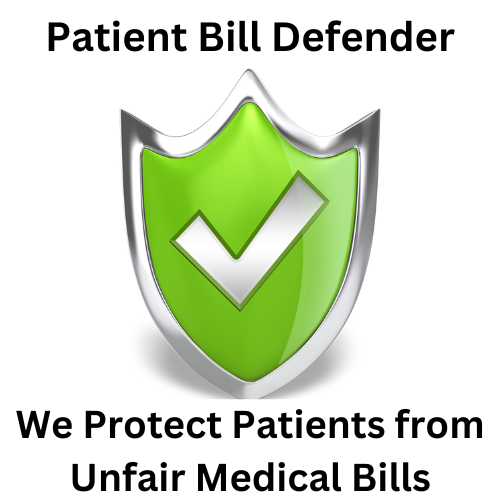How to manage large deductibles
6. Cash Price, known as the uninsured or self-pay price
7. Know your policy
8. Exceptions for In network care: GAP or Network Adequacy Exception
9. No Surprises Act
10. Disease Funds
11. You don’t need to use your doctor’s preferred facility or lab. You have a choice.
13. Utilize a patient advocate like Patient Bill Defender if you get stuck
Hospital Financial Assistance Policies
Most hospitals are Nonprofit. Per the Affordable Care act and IRS tax laws, Nonprofit Hospitals are required to provide financial assistance in order to keep their nonprofit status in the US. If you make under a certain amount of money OR if your medical expenses exceed a certain ratio of your income, hospitals legally have to reduce or eliminate your medical debt. You can do this even if its gone to collections or worse up to 240 days after the first bill, and even later with good cause or some legal exception.
Copay Cards
*Govt insurance exempt
Drug manufacturers provide discounts for commercially insured patients by reducing their out of pocket expenses. Some plans will allow these costs to be adjusted in the out of pocket max and the deductible, but others will not. Not having that adjustment is better for patients because it allows them to hit these thresholds faster. Those insured by medicare, medicaid, tricare, and another government insurance are usually exempt from these benefits. You can find these cards on the manufacturer’s website.
Prescription Financial Assistance Program
Drug Manufacturers have a need based test and supply the drug to patients who cannot afford it. Either they deliver it to the doctors office or ship the medication to the patient’s home. They do verify income but the limit is usually quite generous.
Indemnity Plans
Indemnity plans are supplemental insurance plans underwrited through life insurance companies that reimburse patients a fixed amount for an out of pocket healthcare expense covered in the plan. These should NOT be used as major medical insurance.
Independent Facilities
Avoid places whenever possible that are within 250 yards of any hospital owned property. If an urgent care is owned or affiliated with a hospital in the community, that can be considered a hospital outpatient facility. Ideally, this means going to a mom & pop shop.
Ask for the Cash Price
Ask Insurance for a Gap Exception
Gap exceptions, also known as network adequacy exceptions are some ways to get out of network care covered at in network rates.
You have do a prior authorization for this. You need to prove that there isn’t anyone in network within a reasonable distance that can perform a particular procedure or oversee your care.
One of the other caveats is that you need the same information as a normal prior authorization to get this approved. This is something Patient Bill Defender can help you do in advance.
No Surprises Act
Disease Funds
Disease funds provide grants on a limited basis to support people with a specific medical diagnosis with out of pocket costs associated with the condition you are managing. Some of these funds are limited to out of pocket expenses for the care, while others will allow for transportation and other expenses while you are continuing treatment.
You choose the facility to get care, not your doctor’s office
